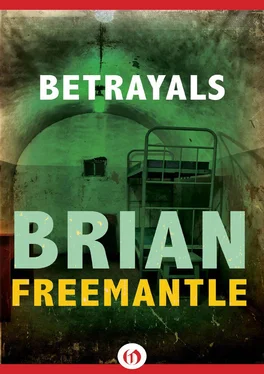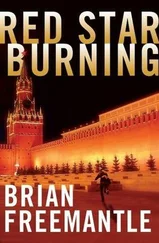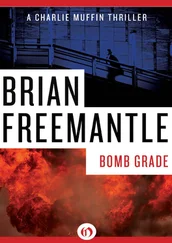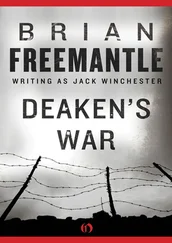Brian Freemantle - Betrayals
Здесь есть возможность читать онлайн «Brian Freemantle - Betrayals» весь текст электронной книги совершенно бесплатно (целиком полную версию без сокращений). В некоторых случаях можно слушать аудио, скачать через торрент в формате fb2 и присутствует краткое содержание. Жанр: Триллер, на английском языке. Описание произведения, (предисловие) а так же отзывы посетителей доступны на портале библиотеки ЛибКат.
- Название:Betrayals
- Автор:
- Жанр:
- Год:неизвестен
- ISBN:нет данных
- Рейтинг книги:5 / 5. Голосов: 1
-
Избранное:Добавить в избранное
- Отзывы:
-
Ваша оценка:
- 100
- 1
- 2
- 3
- 4
- 5
Betrayals: краткое содержание, описание и аннотация
Предлагаем к чтению аннотацию, описание, краткое содержание или предисловие (зависит от того, что написал сам автор книги «Betrayals»). Если вы не нашли необходимую информацию о книге — напишите в комментариях, мы постараемся отыскать её.
Betrayals — читать онлайн бесплатно полную книгу (весь текст) целиком
Ниже представлен текст книги, разбитый по страницам. Система сохранения места последней прочитанной страницы, позволяет с удобством читать онлайн бесплатно книгу «Betrayals», без необходимости каждый раз заново искать на чём Вы остановились. Поставьте закладку, и сможете в любой момент перейти на страницу, на которой закончили чтение.
Интервал:
Закладка:
Directly in front of her in the dinghy the commandoes were putting on night goggles: they made their faces look frog-like. Beside her Baxeter did the same. Baxeter handed her a set, which she fitted on awkwardly.
They were close enough now to hear the surf against the shore over the hardly audible pop of their engine. Beirut was definitely away to their left but so dark was it, even with the benefit of the night vision equipment, Janet found it impossible to judge how far.
Baxeter tugged at her again, indicating that she would soon have to go over the side to wade the last few yards through the water. The men began to leave the dinghy, once more in perfect unison, first port, then starboard, then port again, with scarcely a disturbance of the craft to show their departure. Baxeter prodded her and Janet edged doubtfully over the side, apprehensive of dropping into water she couldn’t see, not knowing what she would encounter underfoot. There was another shove, harder this time, which actually propelled her over the edge. She tensed for the shock of coldness but there wasn’t any because the suit was completely waterproof: nothing brushed against her in the waist-high water and hard-packed sand was even underfoot.
She stood there, knowing a surge of uncertainty, and then felt Baxeter’s hand upon her arm, guiding her towards the shore. She tried to wade like him, with slow, long strides, so that there was no sound from the water.
When they reached it the beach was deserted. Baxeter urged her forward more quickly. Janet stumbled once because the beach had patches of shingle and rock outcrops. Impatiently, Baxeter got directly ahead and felt backwards with his hands, showing her where it was safe to walk. Janet was conscious of ascending a rising slope and as it became lighter she realized they had climbed an incline to a shore-road. Ahead was the uneven outline of vehicles, three or four quite low, jeep-like, then a higher-sided lorry and more jeeps. It was a considerable convoy and Janet wondered how they had managed to get a fleet that size undetected across the border and up through Southern Lebanon.
Baxeter led her to the last jeep and they sat in it alone, apart from the driver. Baxeter was leaning forward but not too close to the driver, his head automatically bent as he whispered into the throat mike that formed part of his communications set. They moved off at staged intervals and Janet very quickly lost sight of the leading vehicles.
They traveled only briefly, not more than fifteen minutes, before pulling into a walled yard in what had to be the southernmost suburb of the city. As their jeep, the last, went through the gate, shadowy figures closed it immediately behind them. Janet squinted around the parking area, sure there were not as many vehicles now as there had been when they set out.
Groups of men were assembled in absolute silence and in marked separate units. She could make out heavier equipment she guessed had been hauled ashore in the supply dinghies: there were two long-barreled guns she thought must be rocket launchers and quite near a man was harnessed into a cumbersome tank from which a nozzle led. A flamethrower, she supposed.
They exited on foot at timed intervals, with her and Baxeter bringing up the rear. There were city sounds now: music strained through walls and windows, the occasional headlight glare of a car, people huddled in cafes they were careful to skirt, always getting past by going around and keeping the block of the building between them. At first Janet had been able to make out quite a few of the commandoes, but it became increasingly difficult and then Baxeter pulled her away from the direction they had been following up a very narrow, darkened alley, little more than a footpath between two buildings.
Janet followed dutifully, conscious once more of a slope underfoot and bending forward to climb it. Once again the devastation was all around, as it had been when she’d fled her attackers: Janet supposed they would have not have been able to move around the city with such comparative ease unless the lighting had been practically nonexistent. The chief danger of attention came from foraging dogs which barked and snarled and sniffed after them: twice windows above opened and there were Arabic shouts for the animals to be quiet. Each time Baxeter was ahead of any movement, moving her quickly into the shadows of a doorway.
She and Baxeter had been moving apparently alone for longer than Janet had expected and she wished she knew Beirut well enough to know when they actually got into the Kantari district. She should have asked to look at the maps or the photographs in Willsher’s room in Cyprus: the Americans had relaxed sufficiently in her presence and she was sure they would have allowed it. She longed to stop Baxeter, to ask him, but recognized that the question did not constitute the sort of emergency he’d stipulated.
They came to an intersection with a wider, better-lit thoroughfare and once more Baxeter pulled her into the concealment of a doorway while he edged forward to reconnoiter their crossing. It gave Janet the opportunity to look around, particularly behind her. She did so, frowning. She made out the glint of the sea and the brighter harbor area (was that the area through which she’d fled, in gut-tightening fear of being caught?) and even the faraway bright normality of East Beirut. Was Kantari on a hill? She had imagined it to be further down, in the flatter part of the city.
Baxeter was back beside her, sign-languaging an occupied cafe to the left on the main road, where it sloped back down towards the waterfront, and gesturing for her to move at once and hurriedly when he gave the signal. Janet nodded her understanding, pushing away from her concealment and going head bent, looking neither left nor right, across the road. The illumination was still comparatively low and the highway deserted but Janet walked with the feeling of scurrying beneath an inquiring spotlight, tensed for a shout of challenge. Nothing came. She was panting, more through apprehension than effort, when she reached the other side, finding her own concealing doorway. She looked back, trying to locate Baxeter but couldn’t. She checked her watch. One-thirty: thirty minutes to go before the American assault. Why had they split from the rest of the group?
Janet did not see Baxeter start out. He was suddenly in the street, moving low and very fast. Janet actually held her breath, waiting for the challenge that had not come when she crossed, but once again there was nothing. She gestured as he pushed into the alley and he halted, close against her in the doorway.
Seizing the opportunity Janet gestured him even nearer. He eased the hood away from the side of his face and she heard a staccato spurt of Hebrew from the headset. She hissed: “Why have we separated from the others!”
“Safer,” he whispered back, closing off the exchange by pulling the hood back into place.
Baxeter led off again, going to the end of the alley and then breaking to their right, running parallel with the road they had just crossed. From the camber Janet knew they were still climbing.
They made a detour around another coffeehouse from which there was thin music and the mumble of conversation and once had to pull, unmoving, into a rubble-strewn courtyard to evade a sudden gaggle of men who appeared ahead of them, walking in their direction. The group passed, unaware. Janet expected she and Baxeter to move out at once but Baxeter held her back. She thought it was to let the men get further away but then realized Baxeter was reholstering into his backpack a short hand-weapon that bulged with a fat-nosed silencer. Just innocent men, merely walking home from some late-night outing, Janet thought: it would have been murder.
He urged her on until they reached the junction at which they’d first seen the approaching men. Baxeter hesitated for a moment, orienting himself, led her about ten yards to the left and then stopped, hunkering down against a large, deserted building beside which there was a completely open space, pulling her down to his level. Across the open space there was a perfect view of the entire city, much better than when she’d first looked down, laid out for inspection in the sharp moonlight.
Читать дальшеИнтервал:
Закладка:
Похожие книги на «Betrayals»
Представляем Вашему вниманию похожие книги на «Betrayals» списком для выбора. Мы отобрали схожую по названию и смыслу литературу в надежде предоставить читателям больше вариантов отыскать новые, интересные, ещё непрочитанные произведения.
Обсуждение, отзывы о книге «Betrayals» и просто собственные мнения читателей. Оставьте ваши комментарии, напишите, что Вы думаете о произведении, его смысле или главных героях. Укажите что конкретно понравилось, а что нет, и почему Вы так считаете.












